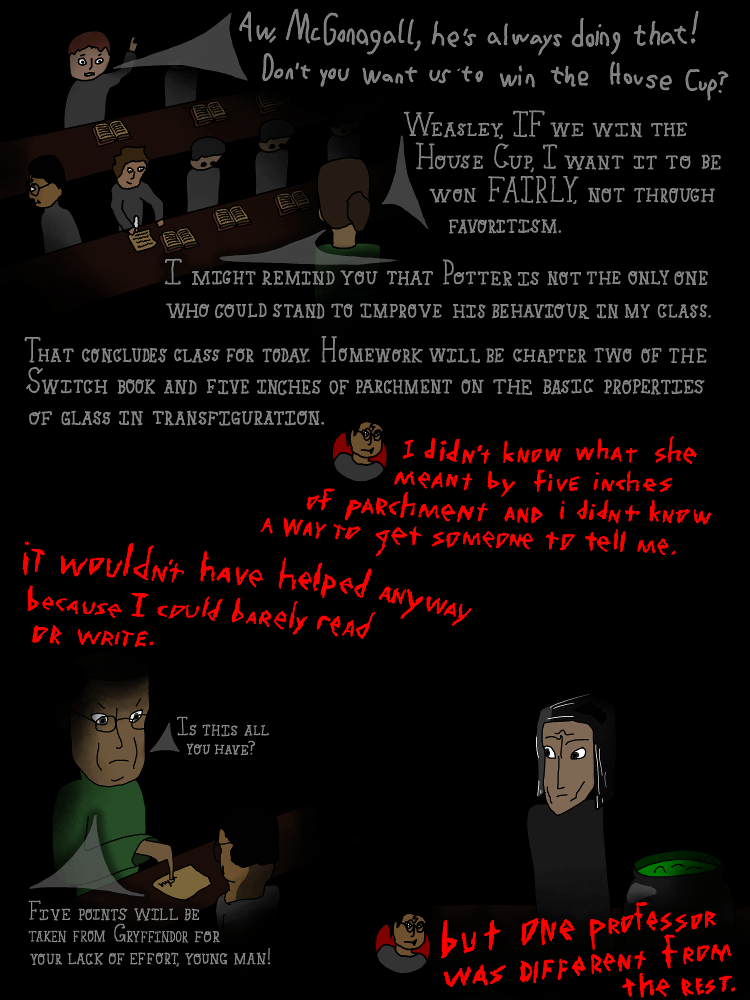Some people would say that Professor McGonagall is “strict, but fair”.
What does it mean to be “strict, but fair”? People think that you can be “strict, but fair” by holding every student to the same standard. But with any standard, there will be some students that cannot live up to that standard, because of some physical, mental, or social limitation. To those students, it is profoundly unfair.
Can you fix that by tailoring your demands to each individual student? Is anyone so skilled that they can identify the abilities of hundreds of people? Is anyone's judgment unclouded by classism, neurelitism, racism, sexism?
If those things are difficult or impossible, is this a task that is “difficult, but necessary”? Is it necessary for education to be a series of demands that adults impose upon children who have never consented to them?
Approximate readability: 8.00 (670 characters, 141 words, 10 sentences, 4.75 characters per word, 14.10 words per sentence)
 encourage me
encourage me


Comments